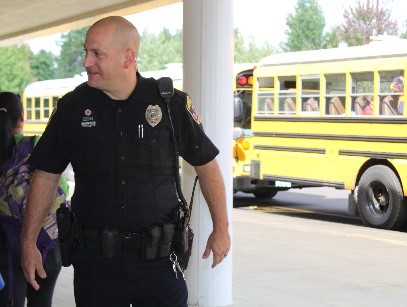By John Rosiak, Founder, Prevention Partnerships
Cops in schools: It’s a contentious issue in contemporary American society. Having worked at the nexus of education and law enforcement for more than 30 years, I have formed some observations and guiding questions that may help school and community leaders address the issue. Based on my experience working with some excellent SROs who really understand crime prevention and who do NOT want to arrest students, I believe police officers can be important partners in school safety. From my experience training School Resource Officers (SROs) in crime, drug, violence, and bullying prevention; and helping school administrators to develop effective policies and practices involving the use of law enforcement officers in schools, I know that we can establish the right climate of safety that is conducive to learning—IF we employ well-trained officers who genuinely like working with students.
Here’s what we know about doing school-based law enforcement right:
- We must clearly define the roles of police in schools.
- We need to make sure that we select the most appropriate officers to work in our schools.
- We must make sure the SROs are adequately trained to do their job.
- We should define policy for a stronger partnership.
- We must engage community partners in the process.
The choice about whether to have law-enforcement officers in schools is an important local decision that should be weighed collaboratively by educators, law enforcement, parents, and other community stakeholders. Those collaborators should carefully consider these lessons to guide them in the process. In doing so, local communities can give our students the supports they need to stay in school—and out of the criminal-justice system.
Check out the fuller commentary on Education Week at: https://goo.gl/XVVXWy
Check out the fuller commentary on the Police Foundation's blog at: goo.gl/6AuHw9
